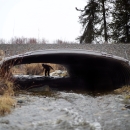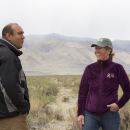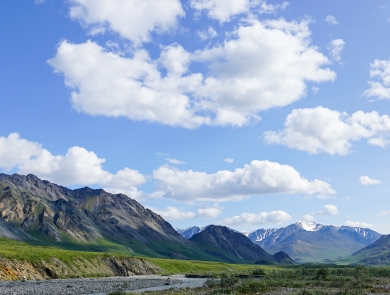About Us
We are connected to the Anchorage Fish and Wildlife Conservation Office and operate together as the Southern Alaska Fish and Wildlife Field Office. Our biologists track trends in salmon returns and migration timing and work with partners to identify and fix barriers that stymie fish passage fish passage
Fish passage is the ability of fish or other aquatic species to move freely throughout their life to find food, reproduce, and complete their natural migration cycles. Millions of barriers to fish passage across the country are fragmenting habitat and leading to species declines. The U.S. Fish and Wildlife Service's National Fish Passage Program is working to reconnect watersheds to benefit both wildlife and people.
Learn more about fish passage and restore fish habitat.






